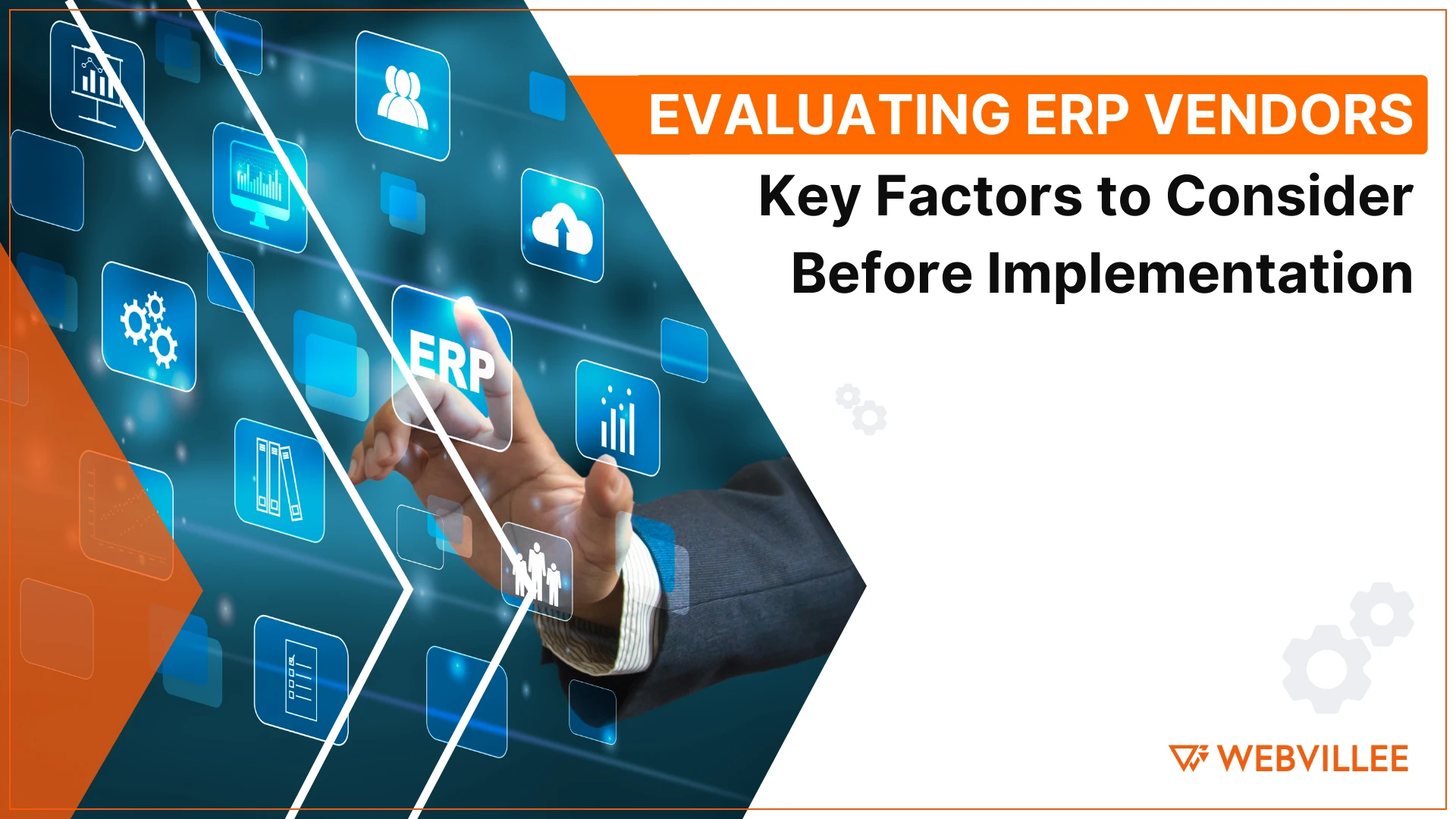When your business decides to implement an Enterprise Resource Planning (ERP) system, choosing the right ERP vendor is a crucial decision. An ERP system helps streamline various business processes, such as inventory management, finance, human resources, and customer relations. With so many vendors out there, how do you choose the right one? Here are the key factors you should consider before making your decision.
Understand Your Business Needs
Before evaluating any ERP vendors, it’s important to have a clear understanding of your own business needs. Each business has unique processes, goals, and challenges. Ask yourself:
- What are the pain points in your current system?
- What features do you need (e.g., accounting, inventory management, HR, etc.)?
- What are your growth plans, and does the ERP system support scalability?
Knowing your requirements will help you find a vendor that offers a solution that fits your business model and growth potential.
Vendor Reputation and Experience
It’s important to choose a vendor with a good reputation and proven experience in implementing ERP systems. A well-established vendor will likely have a track record of successfully helping businesses similar to yours.
- Look for customer reviews and case studies.
- Ask for references from businesses in your industry.
- Check how long the vendor has been in the market and their experience with ERP systems.
A vendor with solid experience will understand the challenges that come with ERP implementation and can guide you through the process.
Customization and Flexibility
Every business operates differently, and it’s important that your ERP system can be customized to meet your specific needs. While most ERP systems come with a set of standard features, the best ones allow for flexibility and customization.
- Does the vendor offer customizable modules to suit your processes?
- How easy is it to modify the system as your business grows?
- Will the vendor work with you to tailor the system to your needs?
Make sure the vendor’s solution can grow and evolve with your business, without requiring expensive or complex updates in the future.
Ease of Use
One of the biggest challenges businesses face when implementing ERP is getting their team to adopt the system. A user-friendly ERP system ensures smoother implementation and a quicker learning curve.
- How intuitive is the system?
- Does it offer training materials and user support?
- Is the system easy to navigate for different types of users?
The easier the system is to use, the faster your team will be able to adapt to the new system, which means less downtime and more productivity.
Integration with Existing Systems
Most businesses already use other software tools like accounting systems, CRM (Customer Relationship Management), or HR software. It’s important that the ERP system you choose can integrate seamlessly with these existing systems to avoid data silos and ensure smooth operations.
- Does the vendor offer integration with your current software?
- Will data transfer between systems be smooth and error-free?
- How much effort and time is required for integration?
Ensure the ERP system can easily integrate with your existing tools to maximize efficiency and reduce duplication of effort.
Cost of Implementation and Maintenance
Cost is always an important factor when evaluating ERP vendors. While the upfront cost of an ERP system is a major consideration, don’t forget to take into account the long-term expenses, such as maintenance, updates, and training.
- What is the total cost of ownership (TCO), including licenses, implementation, and support?
- Are there any hidden costs or ongoing fees for updates or maintenance?
- Does the vendor offer scalable pricing, depending on your business size and needs?
Understanding the full cost structure will help you make an informed decision and ensure that you can afford the system in the long run.
Support and Customer Service
Once the ERP system is in place, you’ll need support for troubleshooting, updates, and ongoing maintenance. Ensure that the vendor offers comprehensive customer service and support to assist you after the implementation.
- What type of support does the vendor provide (e.g., 24/7 support, live chat, phone support)?
- How long does it take to get assistance if issues arise?
- Does the vendor offer post-implementation training and documentation?
Good customer support is essential to keep your ERP system running smoothly and to resolve any issues quickly.
Security Features
Security is a top priority when it comes to managing sensitive business data, especially when it comes to financial and customer information. Make sure the ERP system you choose has strong security measures in place.
- Does the vendor offer data encryption, user access controls, and secure backups?
- How does the ERP system protect against cyber threats and data breaches?
- Does the vendor comply with industry-specific data protection regulations?
Choosing an ERP system with robust security features will help protect your business data and give you peace of mind.
Scalability and Future Growth
As your business grows, your ERP system needs to grow with it. It’s important to choose a vendor that offers a scalable solution that can accommodate future needs and increased demand.
- Can the ERP system handle increased users, transactions, or data as your business expands?
- Does the vendor offer additional modules or features you can add as your needs change?
- Is the system flexible enough to adapt to new business processes or industry changes?
Choosing a scalable ERP system will ensure that you don’t have to change systems again in a few years as your business evolves.
Wrapping up! At Webvillee, we specialize in creating tailored ERP and CRM systems that are customized to meet the unique needs of your business. Our team works closely with you to design solutions that align with your goals, helping you improve business processes, enhance productivity, and support future growth. With Webvillee’s expertise, you can confidently implement an ERP system that works for your business, not the other way around.

